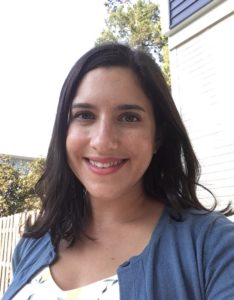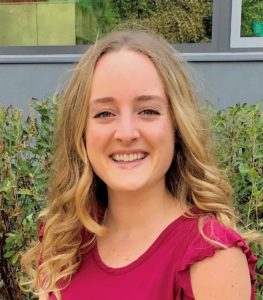CHADD Supports Emerging Researchers in ADHD
Two emerging scientists have been named as recipients of the 2020 CHADD Young Scientist Research Awards, recognizing contributions toward building a greater understanding of ADHD. This year’s grant winners include Penn State Hershey Medical Center’s Whitney Fosco, PhD, and the University of Maryland’s Lauren Oddo, MS. This marks the thirteenth year that CHADD―the leading nonprofit organization providing support, training, education, and advocacy for the ADHD community―has presented the Young Scientist Research Awards.
“CHADD is proud to celebrate and support the work of up-and-coming researchers who are making valuable contributions in the field of ADHD,” said Max Wiznitzer, MD, a pediatric neurologist at Rainbow Babies & Children’s Hospital in Cleveland, Ohio, and co-chair of CHADD’s professional advisory board. Dr. Wiznitzer and his PAB colleagues―all renowned experts in ADHD―reviewed this year’s grant applications and awarded two unrestricted grants, each in the amount of $1,000, to the following two young scientists. Recipients also received a one-year professional membership to CHADD.

Whitney Fosco, PhD
Whitney Fosco, PhD, is an assistant professor in the department of psychiatry and behavioral health at Penn State Hershey Medical Center. Dr. Fosco received her PhD in clinical psychology from the State University of New York at Buffalo in 2018 under the mentorship of Dr. Larry Hawk, and completed her pre-doctoral internship at the University of Mississippi Medical Center. She recently completed a post-doctoral fellowship at Florida International University’s Center for Children and Families, which focused on acquiring the relevant expertise to incorporate neuroimaging methodology into her work. Dr. Fosco’s winning research study is titled Understanding Biological and Behavioral Variability in ADHD: An Evaluation of Dynamic Neurobiological Mechanisms of Inattention.

Lauren Oddo, MS
Lauren Oddo, MS, is a doctoral candidate in the clinical psychology program at the University of Maryland, College Park, working under the mentorship of Dr. Andrea Chronis-Tuscano. Oddo completed her undergraduate training at the University of Richmond, graduating with honors in 2015. Following graduation, she worked as a research coordinator at Virginia Commonwealth University, focusing on school-based intervention studies for adolescents with ADHD. Her research and clinical work focuses on developmental trajectories, adjustment, and treatment of individuals with ADHD across the lifespan, particularly in high-risk transitional periods (i.e., adolescence and young adulthood). The title of Oddo’s winning research study is A Behavioral Economics Approach to Understanding the Association Between ADHD and Alcohol Problems in College.
To be eligible for the CHADD Young Scientist Research Awards, applicants must be in the process of completing a doctoral degree or have completed their degree within the last three years. Research may be in any area relevant to ADHD, including, but not limited to, biological/genetic underpinnings, treatment efficacy, impact on the individual or family, school or workplace accommodations, social stigma and discrimination, public health, and epidemiology. Applicants must submit a detailed description of their research program, accompanied by supporting documents such as published papers or summaries of ongoing studies, and a minimum of two recommendations from professors. Submitted research must have institutional review board approval. The review panel evaluates significance, methodology, clarity of the problem addressed, relevance and adequacy of literature review, and contribution of new knowledge in the field, to determine grant recipients.
“Previous winners of the CHADD Young Scientist Research Awards have gone on to become prominent researchers, reaching important achievements in the study of ADHD,” said Dr. Wiznitzer. “CHADD remains committed to encouraging excellence in research, and we look forward to all that our 2020 grant recipients will accomplish in the future. We extend our heartiest congratulations to Whitney Fosco, PhD, and Lauren Oddo, MS.”
